Advantages of Bilingual Kindergarten Education in Singapore: How It Benefits Your Child’s Development
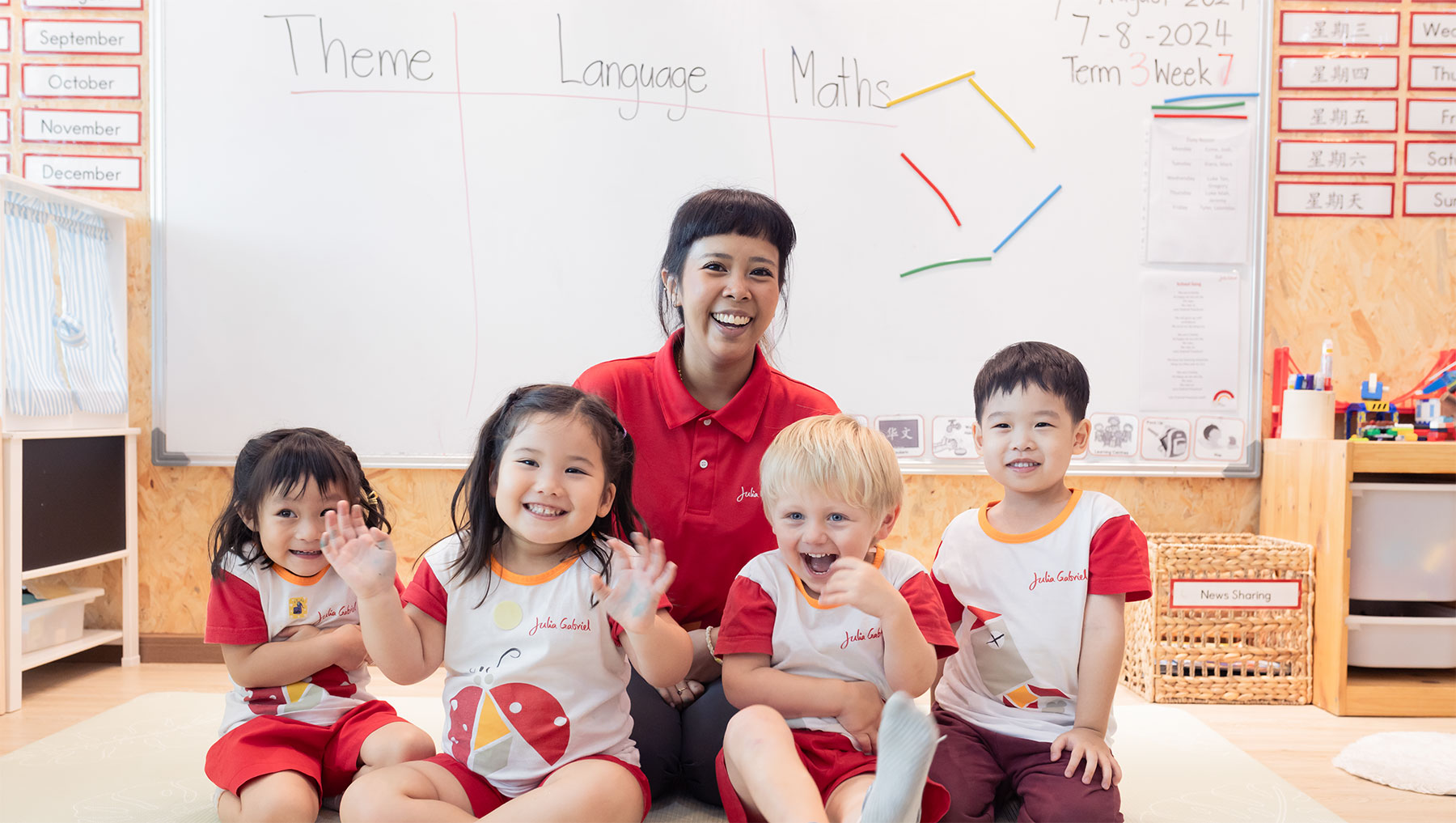
Bilingual education offers children a valuable head start in life, especially in a multicultural society like Singapore. A bilingual kindergarten in Singapore provides young learners with the cognitive and cultural advantages they need to thrive in an increasingly interconnected world.
Global languages such as English and Mandarin play vital roles in communication and cultural identity. While English remains a dominant language, Mandarin has become an essential skill for communication, business, and cultural understanding.
Whether you are considering enrolling your child in a Singapore kindergarten with a bilingual curriculum or looking for ways to reinforce their learning at home, this guide will explore the benefits of bilingual education and practical strategies to support your child’s language development.
So why is bilingual education so crucial, and how can parents support their child’s journey outside the classroom?
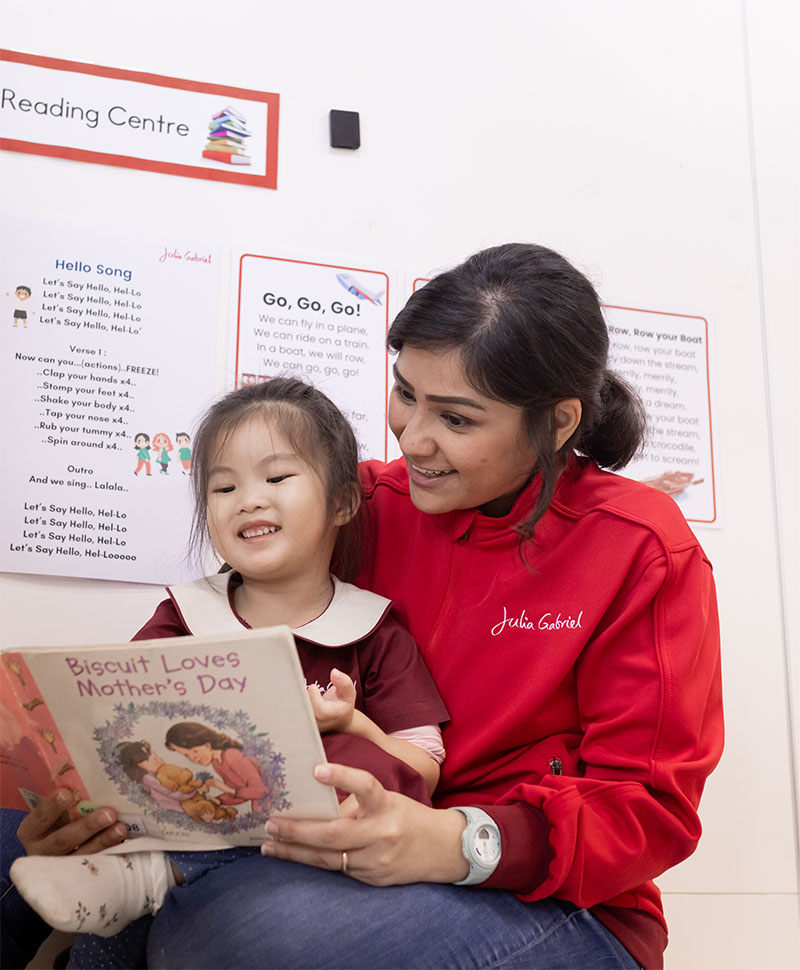
Why a Bilingual Education Matters
Cognitive and Developmental Benefits of Bilingualism in Kindergarten
Numerous studies have shown that learning two languages from an early age significantly enhances brain development. Young children have a natural ability to absorb and differentiate languages.
Children who grow up with a bilingual education tend to:
- Develop stronger problem-solving skills
- Exhibit greater creativity and critical thinking
- Show improved memory and concentration
- Easily adapt to new learning challenges
Bilingualism also improves memory, focus, and the ability to multitask.
At Julia Gabriel Preschool, we integrate bilingual learning from an early age to maximise these cognitive benefits. In our Pre-Nursery and Nursery One classes, a Mandarin teacher is attached full-time to each class, ensuring a natural and immersive learning environment.
Through meaningful interactions, children develop a positive connection to the second language, building confidence and fluency over time.
Cultural Benefits of Bilingual Education:
Beyond Just Learning a Language
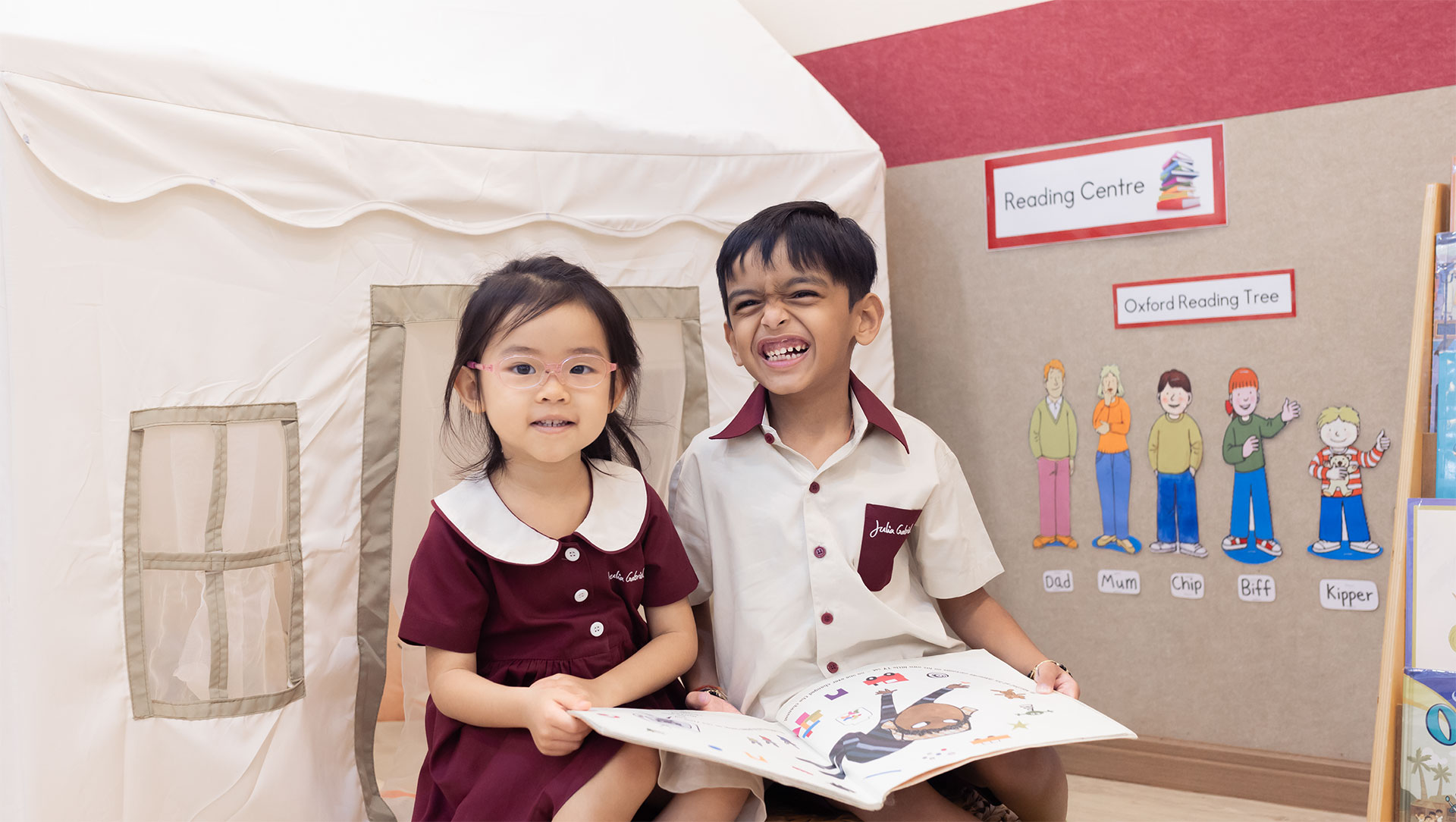
Language is deeply tied to culture, and learning Mandarin at an early age allows children to connect with Chinese traditions, literature, and values in an authentic way.
As Singapore embraces a bilingual policy, fluency in Mandarin not only opens doors to academic and career opportunities but also fosters meaningful connections with Mandarin-speaking family members and peers.
At Julia Gabriel Preschool, we celebrate these cultural aspects throughout our curriculum. Drama, music, and Chinese cultural arts play a crucial role in making language acquisition fun and meaningful here.
Children engage in hands-on experiences such as:
- Role-playing and storytelling – Bringing Chinese folklore and traditions to life, practice using Mandarin naturally.
- Music and song – Learning Mandarin through engaging nursery rhymes and traditional songs.
- Chinese calligraphy and crafts – Encouraging creativity while reinforcing language skills.
By making language learning interactive and enjoyable, children develop a genuine appreciation for Mandarin, rather than seeing it as just another subject to study.
How Julia Gabriel Preschool Integrates Bilingual Education
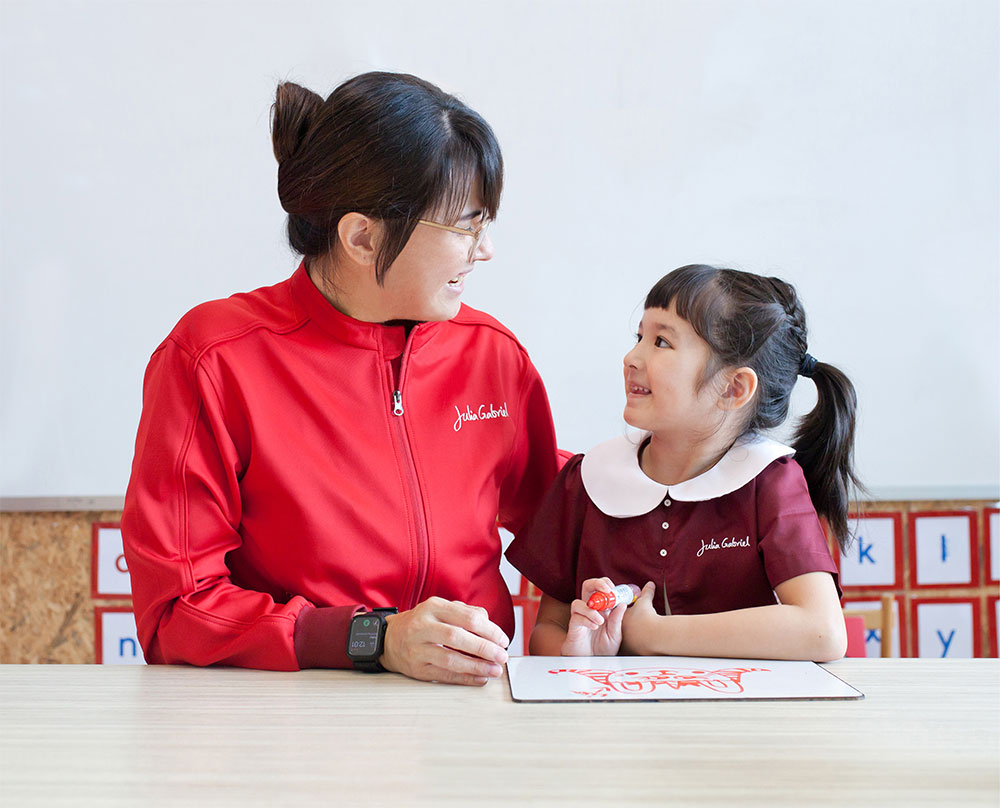
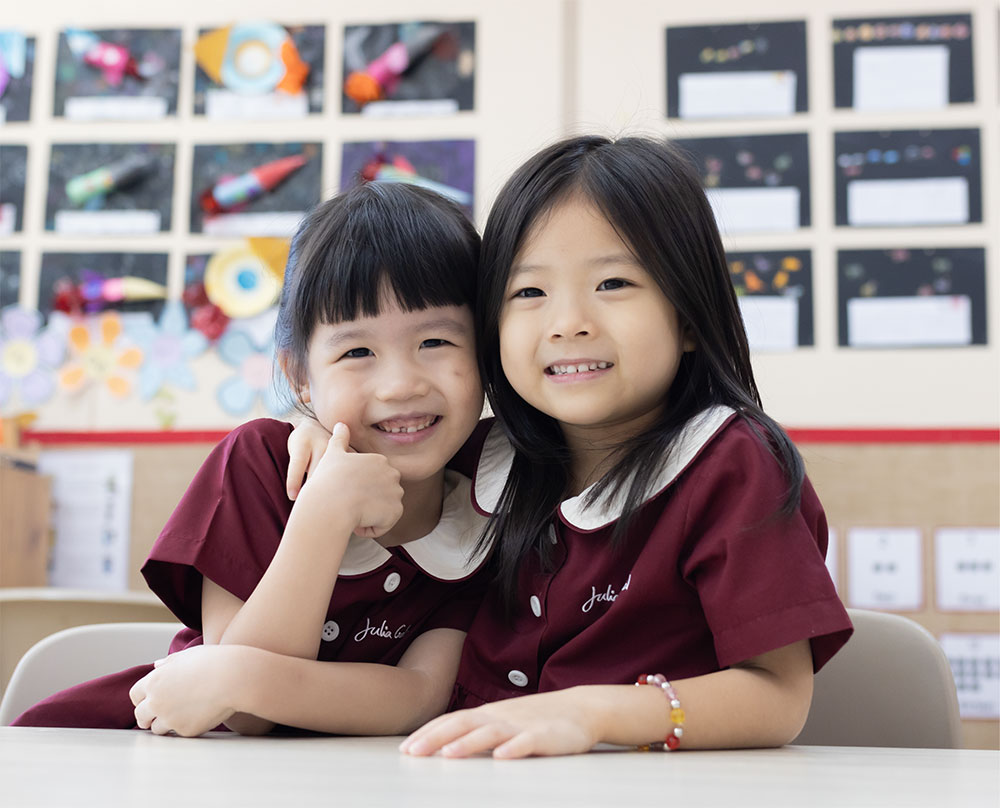
Unlike the traditional rote memorisation methods that many parents may remember from their own kindergarten days, modern bilingual kindergarten in Singapore settings focus on immersive, play-based, and interactive learning experiences.
- Mandarin is part of daily activities – Whether through conversations, songs, or storytelling, children naturally pick up vocabulary and sentence structures.
- Small group learning ensures personalised attention – Our educators cater to each child's unique pace and learning style.
- Drama and play make language learning fun – Engaging performances help children practice speaking Mandarin with confidence.
This immersive approach allows children to develop fluency naturally and enjoyably, setting them up for lifelong success in both languages.
How to Nurture Your Child’s Bilingual Skills at Home
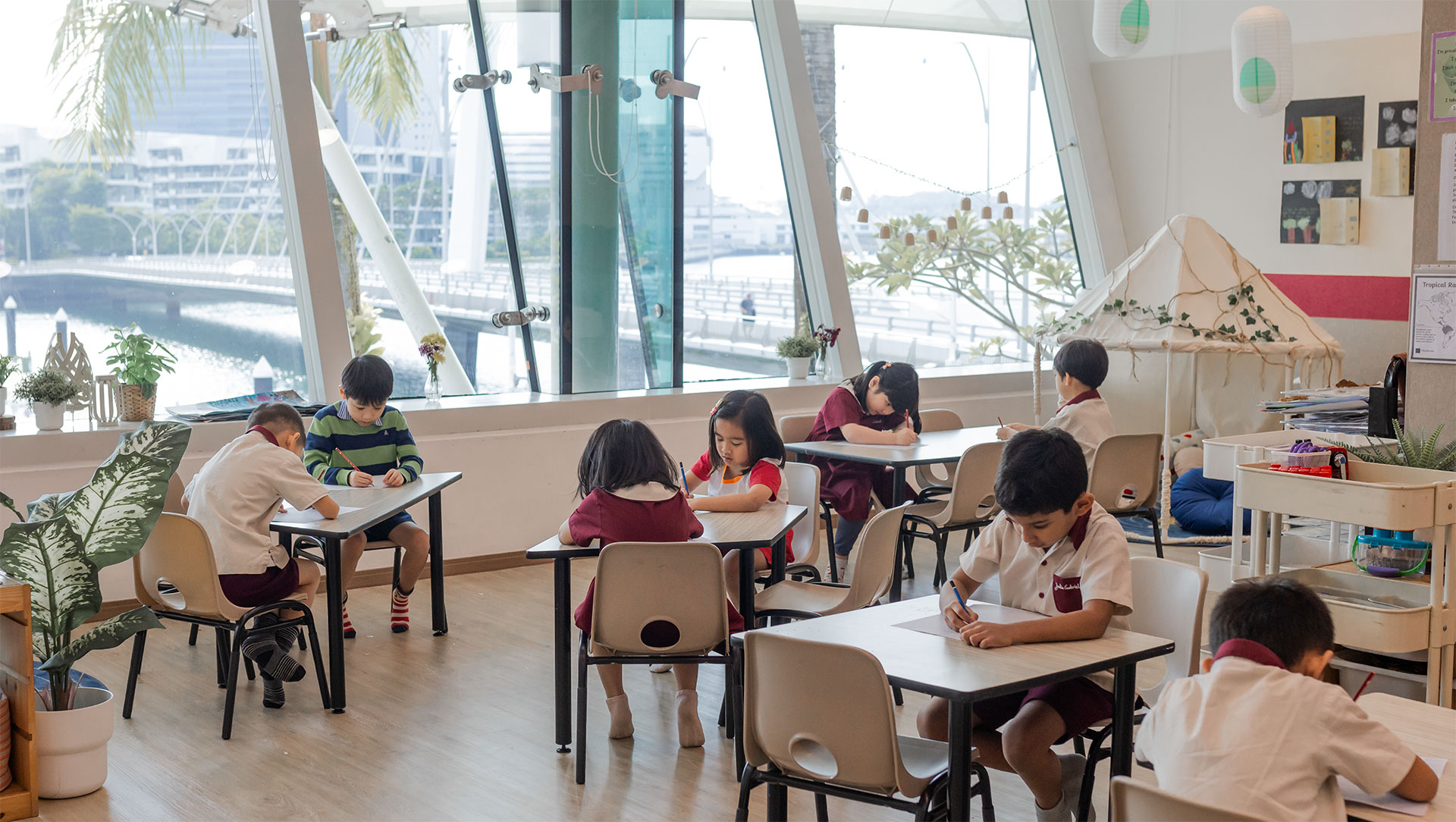
As the age-old adage goes, it truly takes a village to raise a child! Parents play a crucial role in reinforcing language learning beyond a kindergarten classroom.
Here are some practical and easy ways to create a Mandarin-rich environment at home:
Make Mandarin a Part of Daily Life
- Label common household items in Mandarin and use these words in daily conversations.
- Speak simple phrases throughout the day – for example, greet your child in Mandarin or describe objects around them.
- Play Mandarin audiobooks, nursery rhymes and songs in the background while at home or during car rides.
Encourage Bilingual Playtime
- Choose games like flashcards, puzzles, and board games that introduce new Mandarin words.
- Read bilingual books together – interactive stories with audio can be especially helpful for pronunciation.
- Act out simple scenarios in Mandarin, such as ordering food at a restaurant or pretending to be shopkeepers.
Celebrate Cultural Experiences
- Visit Chinese cultural festivals and encourage participation in traditional arts like calligraphy and Chinese orchestra performances.
- Explore festive activities such as making mooncakes during the Mid-Autumn Festival or decorating for Lunar New Year.
- Cook simple Mandarin recipes together, discussing ingredients and steps in the same language
Connect with Native Speakers
- Arrange playdates with Mandarin-speaking friends or family members.
- Video call relatives who speak Mandarin to encourage conversation in a natural setting.
- Watch engaging Mandarin-language cartoons or educational videos together.
Tips for Parents to Reinforce Your Child’s Mandarin Speaking & Writing Skills
Speaking Practice:
- Keep conversations fun and low-pressure – children learn best when they feel comfortable. Talk to your child in Mandarin daily – Keep conversations simple and relevant to their interests.
- Use role-playing for everyday scenarios like buying groceries or ordering food.
- Watch Mandarin videos or listen to audiobooks with repetitive dialogue to boost comprehension.
Writing Practice:
- Encourage simple journaling – Even simple drawings with Chinese labels can build confidence.
- Use calligraphy brushes or magnetic writing boards to make writing practice fun.
- Write letters to family members – A handwritten note in Mandarin to a grandparent or relative makes language learning meaningful and builds confidence in your child.
Bilingual Education: A Lifelong Advantage
Enrolling your child in a bilingual kindergarten in Singapore is one of the most valuable gifts you can give them. It is also a lifelong gift. It opens doors to academic and career opportunities while also strengthening cultural connections.
By supporting language learning at home through fun, engaging activities, you can help your child build fluency, confidence, and a lifelong love for Mandarin.
Every small effort counts, and with consistency and encouragement, bilingualism can become a natural and rewarding part of your child’s life, and one they will thank you for!
Join a Bilingual Kindergarten – Embark on your journey today!
At Julia Gabriel Preschool, we believe in nurturing bilingualism through immersive, meaningful experiences.
Want to learn more? Explore our bilingual programmes here!

